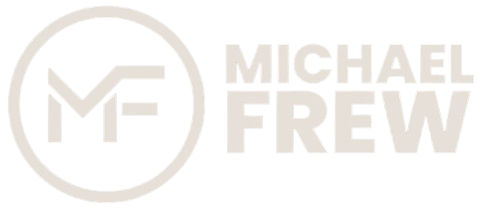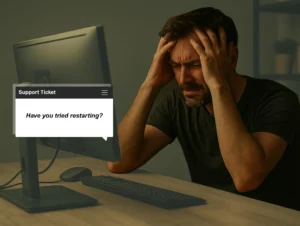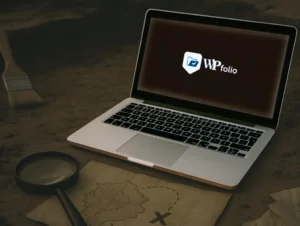How I Slowly Molded a 7-Figure Business to Run a Few Hours per Week
When I acquired QuotaGuard in 2013, it consumed 40+ hours of my week. Now that same business generates seven-figure revenue on just 2-5 hours of work per week.
But here’s what nobody tells you about buying a supposedly “passive” business: You’re not acquiring passive income. You’re acquiring the opportunity to create passive income through deliberate and patient transformation.
Let me give you some context: I bought QuotaGuard for about $230,000, all cash. It’s a standard enterprise static IP proxy service. Nothing sexy. Just solving one problem for enterprise customers who need enterprise level static IPs for their security models in their infrastructure and applications.
Today, it generates north of $100,000 in MRR. And here’s what’s even more interesting: There are weeks where I could do zero hours if I really felt like it.
When I go on vacation for a couple weeks, I really only have to take a quick glance once a day to see if anything needs my attention.
Many times, I can just close the laptop and continue my vacation.
Ironically, almost every time I go on vacation, the revenue goes up. Which is infuriating for someone like me who tries to grow the business, not hurt it, with my own involvement.
Which probably tells me I should stop being involved in the business at all – it almost runs better without me.
More Hands On Than I Need to Be
I still monitor every support ticket and can respond within a minute if I have the answer. I still really enjoy being involved in customer service because it helps me keep a pulse on the issues with the business.
I get it that the goal of some acquisition entrepreneurs is to do as little as possible in their business and have it continue to grow while they just get profit reports every month.
But when you first acquire a business, trust me, you’ve essentially “bought a job“. You’ve not bought a passive income stream yet.
Even if the business was passive for the seller, it won’t be passive for you. Not at first.
You need to learn every aspect of the operation, understand the customers, build trust with any existing team, and create your own systems.
But here’s what’s possible when you transform an acquisition into a truly passive operation
QuotaGuard now runs itself, which frees me up to actively grow my other businesses. I can pour my energy into WP Folio and Gigalixir because I’m not stuck in QuotaGuard’s daily operations anymore.
My other acquisition, Appointment Reminder, is also completely passive – requiring literally zero hours per week. Between QuotaGuard at 3-5 hours and Appointment Reminder at zero, I have the time and mental space to focus on the businesses that actually need my attention.
That’s the real power of patient transformation – it’s not just about making one business passive, it’s about creating the freedom to build a portfolio.
By making these businesses as passive as possible, I can focus my energy where it’s needed most. That’s the real power of being patient and deliberate in transforming one business into something as passive as possible.
How To Do It 👇
Finding the Right VA (This Took Years, Not Months)
My assistant Van has been absolutely fantastic. But let me be clear – it took years to find him.
I went through multiple VAs before landing on the right fit.
I used a virtual assistant service that hired more expensive VAs to get more professional people.
Once I found Van, I bought him out from the VA company. We split the margin the VA company was taking, he got a raise, and my costs lowered once the buyout price was recouped.
The math: 16 months to break even on the buyout price, and that was multiple years ago. Positive ROI for both myself and Van ever since.
But here’s the reality of delegation: I created SOP videos for Van on everything – answering customer tickets, handling accounting, monthly invoicing, emailing customers about upgrading when they exceeded usage limits.
It took about two years at a measured pace for Van to fully take over my responsibilities to the point where I no longer needed to double-check his work.
Two years. Not two weeks. Not two months. Two years of patient, systematic handoff.
Accepting Market Maturity (Not Fighting Reality)
QuotaGuard has likely reached a point where churn equals growth, and the business is nicely stabilized.
Every SaaS company eventually reaches that point where customer losses equal gains each month.
Instead of fighting this reality with aggressive growth tactics, I recognized this as the perfect time for the business to become hands-off.
This is counterintuitive for most entrepreneurs. We’re taught to always push for growth.
But stability at $1.75M ARR with minimal time investment beats growth that requires 40 hours a week.
Staying Narrow and Refusing to Expand
We solve one problem: Static IPs for enterprise customers. We did not move into VPNs. We did not try to add another product. We focused on one thing to be the absolute best in the market.
I recognize that horizontal expansion is what many business gurus teach, but for me, if I’m looking for the next business, I’m going to acquire something completely different. Not bolt something onto QuotaGuard.
Choosing (and Firing) Customers Strategically
QuotaGuard had opportunities to expand as a provider for Fortune 50 companies. But they required SLAs, legal contracts, certifications that would have necessitated hiring additional staff and taking on massive liability. I turned them down.
Even more important: firing problematic customers.
Multiple times, some of our highest-paying customers have been a huge pain. Earlier in QuotaGuard’s journey, it was hard to tell them, “I don’t want to serve you anymore. You’re taking too much focus from my thousands of other customers. This relationship will end in 60 days.“
Every time we cut off a customer we thought we’d regret losing, we’d look back months later and laugh – we never thought of them once, and revenue continued to grow.
Building Systems That Actually Work
I think a lot of us already focus on automation and systems – probably to the detriment of the other points I’m making.
But yes, having automated billing through Stripe, templated responses for support tickets, clear escalation systems, and monthly reporting automated (whether with your VA or AI or both together) obviously is a big help.
The key isn’t just having systems – it’s having the right systems.
Our billing runs entirely through Stripe, handling 99% of revenue collection without any intervention.
We’ve developed templated responses that handle 90% of support tickets, allowing Van and our engineers to respond quickly and consistently.
I get the pulse of the business without diving into spreadsheets or dashboards.
These systems didn’t happen overnight – they evolved through years of refinement, always asking “how can we make this require less human intervention, but still provide true, relevant human responses?“
Hiring Expensive People (Counterintuitive but Critical)
I recognize everyone is trying to cut costs, replace people with AI, hire the cheapest coders.
That’s not how I want to build a business or a legacy, with cheap people barely able to cut it.
I have very highly technical, competent, and well-paid team members who grow the business simply because their competence makes the company more desirable to customers.
The Bottom Line on “Passive” Income
Let’s be honest: This isn’t truly passive income. I can’t just disappear, many tasks are still dependent on me.
It’s active income and active investing that I’ve optimized down to minimal time requirements.
Even at 3-5 hours per week, I’m still actively involved.
The difference is that I’ve engineered that involvement to be strategic rather than operational.
With this business, the time invested years ago is delivering returns today. The benefit is accruing to me today from work I did five, even ten years ago.
One thing to note: That’s a benefit I wouldn’t have had if I’d sold the business five years in like you’re told to do.
Despite being a business acquirer, I actually hold onto my companies quite a long time – QuotaGuard is now over a decade since my acquisition – because that time invested in the beginning is now paying off incredibly well.
QuotaGuard is a boring business from a technical standpoint, but boring businesses with repeat customers can bring long term profits. Especially when you’ve invested the years required to make them mostly autonomous.
The transformation from 40+ hours to 2-3 hours didn’t happen overnight. It took patient, systematic work over multiple years. But the payoff – having a seven-figure profit business that runs mostly without you – makes every hour of that investment worthwhile.
If you’re in the thick of an acquisition that feels like you’ve “bought a job,” know that passive operations are achievable. It just takes more time and intentionality than the gurus suggest.
Want to follow along as I share more unfiltered insights from running a 4-business portfolio? I’m documenting the real numbers, the actual challenges, and the tactical decisions that most acquisition entrepreneurs never talk about publicly.
Follow me for more content on transforming acquisitions into (mostly) passive income machines.






